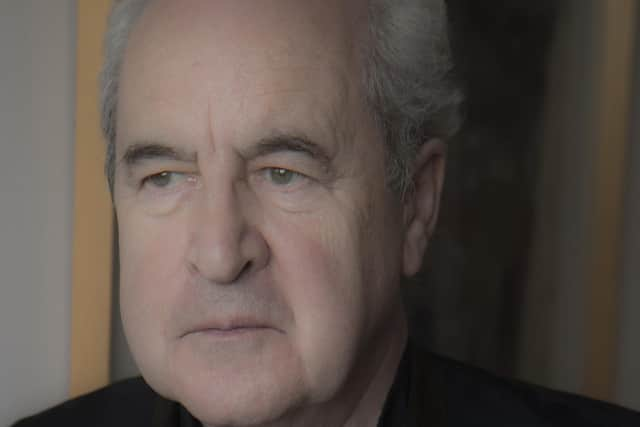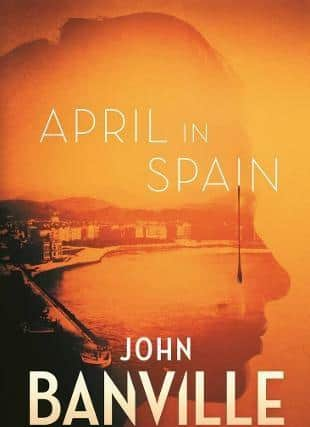Book review: April in Spain, by John Banville


John Banville turned to crime some years ago employing the pseudonym Benjamin Black. It was difficult to see why. The novels were recognizably his, elegant and acute. A couple of years ago Black was apparently retired, and an excellent Crime novel, Snow, appeared under Banville’s own name. April in Autumn has the same principal character as the Black novels, Quirke, the Irish Republic’s State Pathologist, on the scene again. On holiday in northern Spain with his new wife and if not off the drink, at least in control of it, he comes upon a hospital doctor who is, he thinks, a girl called April Latimer who disappeared from Dublin in the wake of a family scandal and has been presumed dead for five years. She was a friend of his daughter Phoebe, and he telephones Phoebe to say he thinks he has seen April.
The Black novels, as well as being well-worked mysteries, were also concerned with the moral and political condition of Ireland. So was Snow and so too is this one. April, the girl who disappeared, or was made to disappear, was a member of a famous and powerful political clan, prominent members of, one assumes, Fianna Fail. (The party is not named, but there’s no doubt which it is.) April’s Uncle Bill is a Government minister, and the man who, with the help of a top Civil Servant, arranged for April to vanish. Phoebe, rather rashly, approaches him, in a splendid scene over tea and drinks in the famous Shelbourne Hotel.
Advertisement
Hide AdThere is a parallel plot featuring a professional gun for hire, by the name of Terry. Irish, but a Londoner by adoption, he has just arrived in Dublin after shooting his former mentor, a fat middle-aged gay man who claims to have had wartime experience in the secret service. Dublin, Ireland indeed, has no happy memories for Terry. He was reared in an orphanage in the West, a place where boys were brutalised and abused; readers of Snow will remember its horrors. Now he drifts about Dublin, disconnected, at a loose end, reading by chance Graham Greene’s Brighton Rock and bringing his experience to consideration of that book’s young killer, Pinkie.


Thomas Hardy wrote a poem about the Titanic entitled “The Convergence of the Twain “ – that is, the great liner and the iceberg – and here one can see early that Terry and April must likewise converge; the questions are how, where, when and with what result? The answer comes with a nasty and unexpected twist. Some of the consequences will, I trust, be worked out in the next novel to feature Quirke.
Banville, unlike many authors who turn to crime, demands, deserves and indeed requires close attention, slow and careful reading. Some 15 years ago his novel The Sea won the Booker Prize. There is no intelligent distinction to be made between his “straight” novels and his crime ones. That fine novelist Nicolas Freeling wrote that crime is “the pathology of the human condition, the moment at which the delicate balance of metabolism tilts into morbidity.” Here, in this masterly book, one is invited to consider which is the more pathological, the more morbidly disturbed, the hired gunman or the politician and civil servant ready to employ him?
Not many crime novels merit, or indeed bear, re-reading, except in your laziest hours and then with a deal of skipping over descriptive paragraphs and without a suspension of disbelief. Banville’s do. Each scene holds the attention, invites question. The precision of the writing is a delight. I got an early proof copy of April in Spain, read it at once with pleasure, have since read it twice more, finding more in it each time. It is a social and political novel too, concerned with the arrogance of power and pervasive moral corruption. As a study of politics in a small country where everyone knows something of everyone else, it’s compelling and disturbing. And on a lighter note, the evocation of the rainy streets and dreary pubs of Dublin before the Republic became rich is strangely appealing. In his eighth decade Banville is writing as well as ever – perhaps even better.
April in Spain, by John Banville, Faber & Faber, 355pp, £14.99
A message from the Editor:
Thank you for reading this article. We're more reliant on your support than ever as the shift in consumer habits brought about by coronavirus impacts our advertisers.
If you haven't already, please consider supporting our trusted, fact-checked journalism by taking out a digital subscription at https://www.scotsman.com/subscriptions